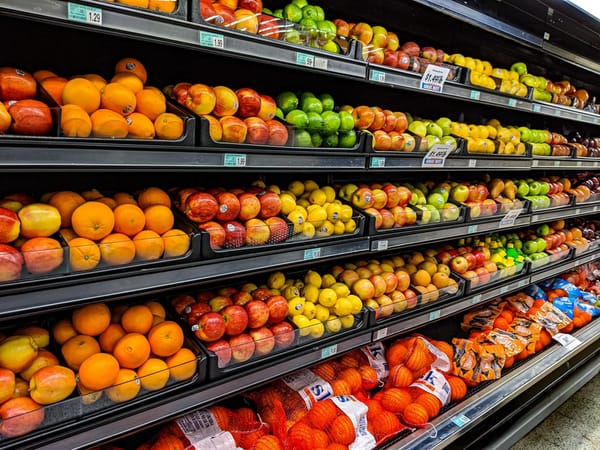How the biggest food manufacturers implement sustainable business models
Sustainability Editor Monami Miyamoto explains how the largest multinational corporations can create meaningful industry change through collaboration.

In the modern consumer-driven world, businesses across sectors are increasingly pressured into implementing operation strategies to reduce greenhouse gas emissions. While individual choices in our day-to-day lives do matter, the benefits of getting corporations to make meaningful change will automatically trickle down to everybody. That's why finding tangible, desirable, viable solutions for businesses to be more sustainable is a crucial challenge of this century.
Achieving this requires more than just one company committing to improving. Instead, examples from the largest food manufacturing companies, including PepsiCo, Danone, and Kellogg's, prove that collaboration is the key ingredient.
it's essential to be cautious of greenwashing
For example, in 2017, PepsiCo partnered with the Ellen McArthur Foundation, a UK-based organisation working towards creating a circular economy. Through this partnership and expertise support, PepsiCo targets 100% of their packaging to be made of recycled materials by 2025. More recently, it announced a mid-term goal of achieving this in 9 major supermarkets across the EU by 2022 and evidence suggests they are currently on track.

Likewise, the world's largest B-corp (a company that meets high social and environmental welfare standards), Danone, has partnered with a non-profit organisation, Full Harvest, to utilise fresh produce that cannot be sold in supermarkets in yoghurt flavouring (e.g., lemons!). This collaboration helps reduce food waste and limits additional land use and resources required to grow the crops in the first place.
Finally, Kellogg's, a company that already uses recycled material in 76% of its packaging and sells plant-based products predominantly, is further pursuing these approaches. They are transforming one of their sub-brands into a fully vegan range and are in the finalising stages of selling mock-meat products. Their director of investor relations, James Duies, has stressed the importance of ESG (Environmental, Social and Governance) investment in enabling this sort of change. As more investors are beginning to consider ESG impact elements in their investment choices, businesses increasingly feel responsible and are financially supported to make meaningful changes.
It's inspiring and encouraging to see businesses step up their game. But, as with most industry cases, it's also essential to be cautious of greenwashing. As they require incentives, partnerships can be more reliable in some ways due to efforts and costs being on both parties. Perhaps only time can reveal whether the attempts being made by these large food companies will have substantial, genuine positive impacts on our planet.







